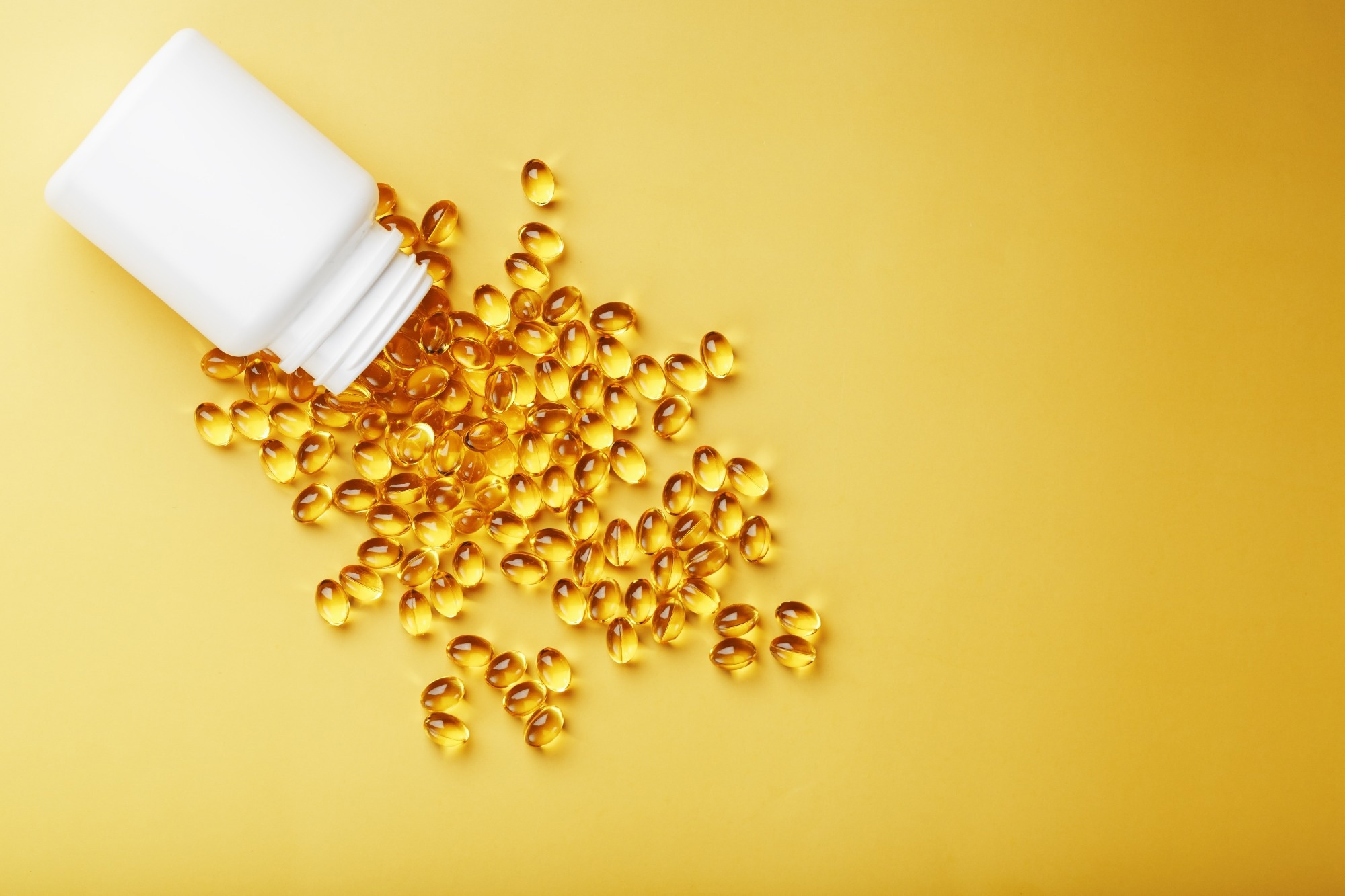Vitamin D is an extensively investigated antioxidant supplement for individuals with multiple sclerosis (MS), with several studies reporting associations between low serological vitamin D levels and disease development and progression.
However, most animal and clinical studies have analyzed the effects of vitamin D in relapsing-remitting cases of MS. Thus, there remains a lack of data on the impact of vitamin D on progressive MS and associated cortical pathology development.
 Study: Vitamin D—An Effective Antioxidant in an Animal Model of Progressive Multiple Sclerosis. Image Credit: Aleksandr Grechanyuk / Shutterstock.com
Study: Vitamin D—An Effective Antioxidant in an Animal Model of Progressive Multiple Sclerosis. Image Credit: Aleksandr Grechanyuk / Shutterstock.com
About the study
In a recent study published in Nutrients, researchers use an established murine model of cortical inflammatory demyelination to investigate the effects of vitamin D on oxidative stress, cortical pathology, and serological neurofilament light chain (NfL) levels.
Dark Agouti (DA) rodents were used for the experiments, with one group administered vitamin D at a dose of 400 IE weekly from three weeks of age until the end of the study. The other murine group was provided with a regular rodent diet.
After a two-week healing period, all rats were vaccinated with myelin oligodendrocyte glycoprotein (MOG). MOG antibodies were measured using enzyme-linked immunosorbent assays (ELISA) after 28 days.
After sufficient titers, rats received cytokine injections of tumor necrosis factor-alpha (TNF-α) and interferon-gamma (IFN-γ) through an implanted catheter. An additional cytokine injection was administered on day 30. Blood samples were obtained prior to catheter implantation, post-MOG immunization, and on days one, three, 15, 30, and 45 following cytokine injection.
Brain tissues were evaluated using immunohistochemical biomarkers against microglial activation, demyelination, apoptosis, neurofilament, reactive astrocytes, and neurons. To assess the influence of vitamin D on oxidative stress, Cu++-oxidized and hypochlorous acid-oxidized low-density lipoproteins levels were determined, alongside total antioxidative capacity (TAC) and protective polyphenols (PP) assessments.
Single-molecule array analysis (SIMOA) analysis was performed to measure serological NfL levels of vitamin D-supplemented and non-supplemented rats.
Study findings
Statistically significant differences were observed among vitamin D-supplemented and non-supplemented animals in the histopathological analysis and for all serological biomarkers. Microglial activation and myelin loss were lower among vitamin D-supplemented rats, in addition to significantly reduced apoptotic cell numbers and increased survival of neurons. Vitamin D-supplemented rats exhibited significantly lower neurofilament light chain serological levels, higher total antioxidative capacity, and more protective polyphenols.
A statistically significant reduction in oxidized lipid biomarkers was observed among vitamin D-supplemented rats. On day 30, at the commencement of remyelination among rats, all investigated histological biomarkers showed statistically significant differences between vitamin D-treated and untreated groups.
The observation of significantly better proteolipid protein (PLP) preservation among vitamin D-supplemented rats on day 30 aligns with previous studies, thus indicating that vitamin D positively affects remyelination.
A considerable increase in serological neurofilament light chain levels was observed after one day of catheter placement prior to attaining baseline levels after healing, which is concordant with acute surgical trauma.
Following cytokine injection, a significant increase in neurofilament light chain levels at the blood-brain barrier (BBB) opening and acute-type cortical demyelination commencement was observed on days one and three. On day 15, at the time of maximal cortical demyelination, NfL levels decreased to levels similar to those observed among healthy control rats.
Peak cortical injury with profound demyelination was observed on days 15 and 30, while the neurofilament light chain peaked much earlier on day three. These findings indicate that increases in NfL levels reflect active tissue injury rather than the degree of cortical demyelination.
The increase in neurofilament light chain levels upon neuroaxonal injury indicates that vitamin D supplementation maintained the structural integrity of neuroaxonal cells in rats despite the pathology not being completely suppressed with this treatment.
The most significant effect of vitamin D supplementation in preventing cortical pathology was fewer apoptotic cells, increased neuronal preservation, and less pronounced microglial activation. Moreover, a tendency towards better preservation of neurofilament structures and PLP was observed linked to vitamin D supplementation.
Vitamin D protects the central nervous system (CNS) from inflammation by modulating growth factors, cytokines, cellular signaling, oxidative stress response, cellular trafficking, and BBB integrity. Vitamin D-induced modified immunological responses in the peripheral nervous system may also protect the CNS from inflammatory damage by local BBB protection.
Vitamin D has been shown to benefit MS patients by protecting the integrity of the BBB. Thus, vitamin D supplementation may result in faster and more thorough restoration of the BBB function to ultimately alleviate cortical injury. Vitamin D supplementation may also attenuate pro-inflammatory responses of CNS astrocytes to improve structural preservation.